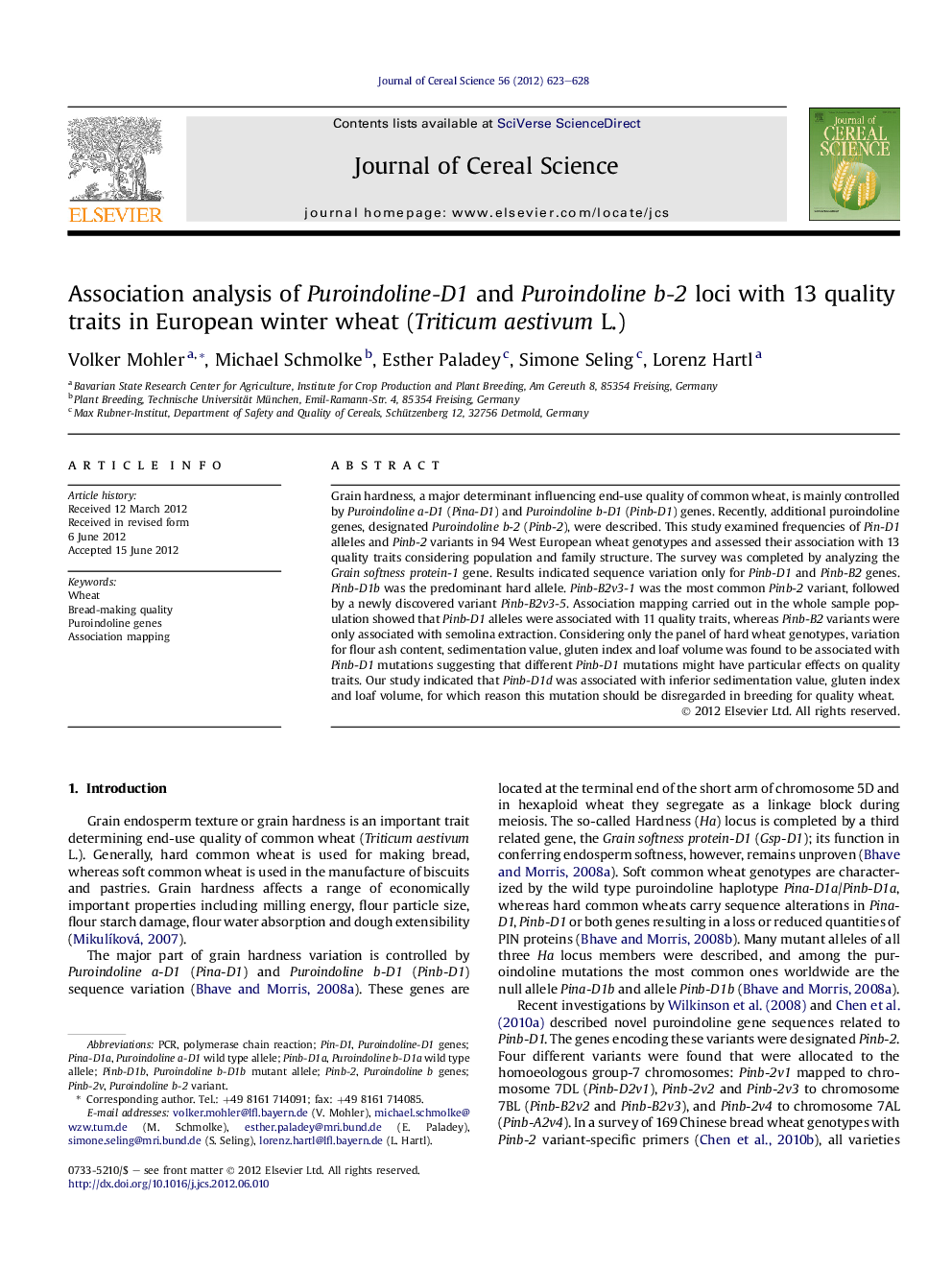| Article ID | Journal | Published Year | Pages | File Type |
|---|---|---|---|---|
| 4516133 | Journal of Cereal Science | 2012 | 6 Pages |
Grain hardness, a major determinant influencing end-use quality of common wheat, is mainly controlled by Puroindoline a-D1 (Pina-D1) and Puroindoline b-D1 (Pinb-D1) genes. Recently, additional puroindoline genes, designated Puroindoline b-2 (Pinb-2), were described. This study examined frequencies of Pin-D1 alleles and Pinb-2 variants in 94 West European wheat genotypes and assessed their association with 13 quality traits considering population and family structure. The survey was completed by analyzing the Grain softness protein-1 gene. Results indicated sequence variation only for Pinb-D1 and Pinb-B2 genes. Pinb-D1b was the predominant hard allele. Pinb-B2v3-1 was the most common Pinb-2 variant, followed by a newly discovered variant Pinb-B2v3-5. Association mapping carried out in the whole sample population showed that Pinb-D1 alleles were associated with 11 quality traits, whereas Pinb-B2 variants were only associated with semolina extraction. Considering only the panel of hard wheat genotypes, variation for flour ash content, sedimentation value, gluten index and loaf volume was found to be associated with Pinb-D1 mutations suggesting that different Pinb-D1 mutations might have particular effects on quality traits. Our study indicated that Pinb-D1d was associated with inferior sedimentation value, gluten index and loaf volume, for which reason this mutation should be disregarded in breeding for quality wheat.
► Pinb-D1b and Pinb-B2v3-1 were the predominant genotypes in the fraction of European winter wheat germplasm analyzed. ► A new variant at the Puroindoline b-B2 locus, designated Pinb-B2v3-5, was discovered. ► Different Pinb-D1 mutations might have particular effects on quality traits. ► Pinb-D1d was associated with inferior sedimentation value, gluten index and loaf volume.
